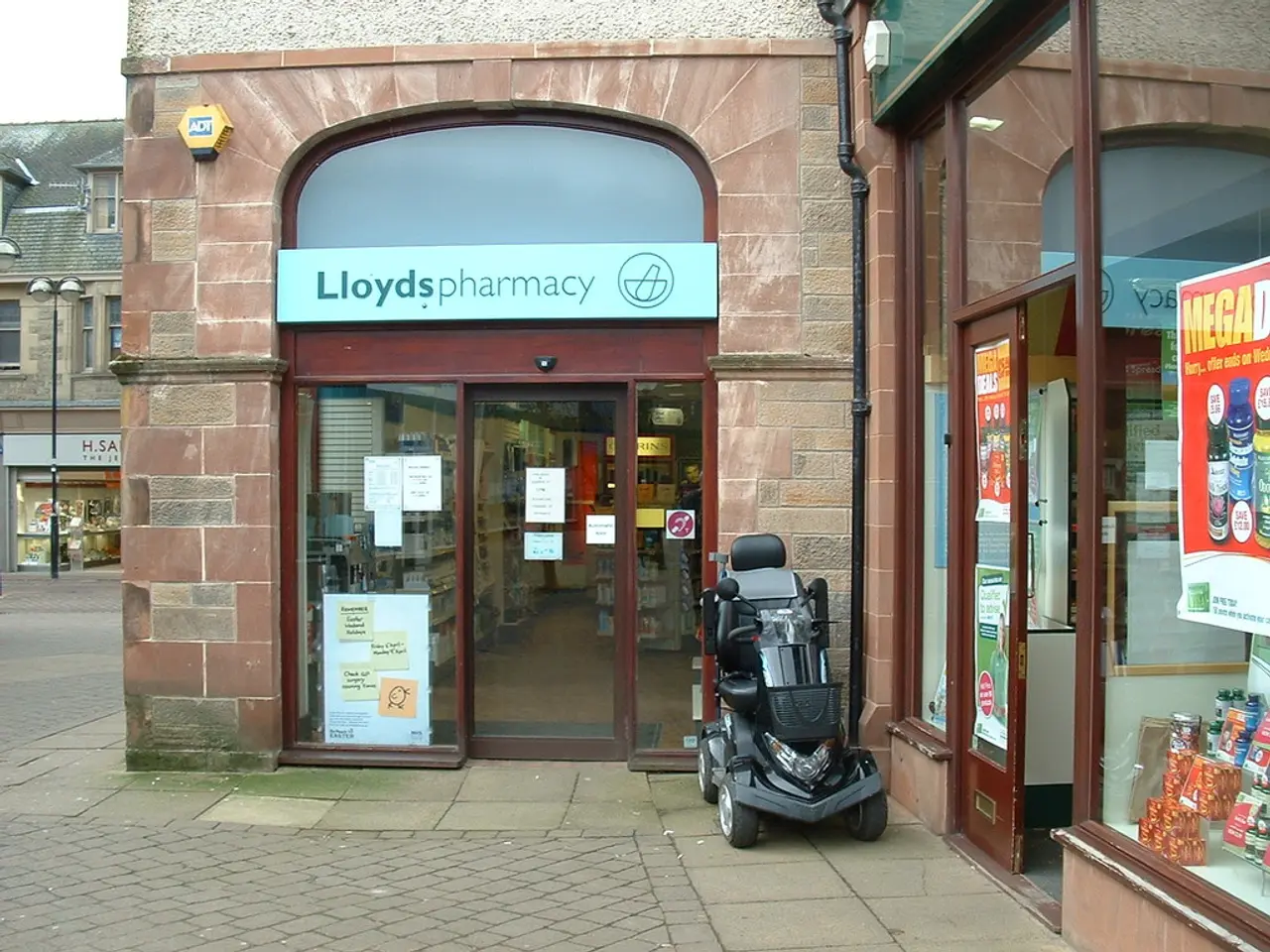Cost of Omeprazole in 2025: Discounts and Additional Savings Strategies
In this article, we explore ways to make omeprazole, a common treatment for various acid-related conditions, more affordable. Omeprazole is a proton pump inhibitor (PPI) used to treat stomach ulcers, duodenal ulcers, gastroesophageal reflux disease (GERD), erosive esophagitis, conditions that cause excessive stomach acid production, and Helicobacter pylori infections.
The cost of omeprazole can vary based on factors such as the treatment plan, insurance coverage, the form of omeprazole used, and the pharmacy used. However, it's essential to note that omeprazole is a generic drug, which tends to cost less than brand-name drugs.
If you don't have health insurance, your doctor or pharmacist may be able to suggest online pharmacy options. Additionally, some Medicare plans may help cover the cost of mail-order medications, which could potentially lower costs by reducing trips to the pharmacy. Websites like Medicine Assistance Tool and NeedyMeds can provide details on drug assistance programs, ways to make the most of your insurance coverage, and links to savings cards and other services.
One way to save money on omeprazole is by getting a 90-day supply with approval from the insurance company. This could lower costs by reducing trips to the pharmacy. In some cases, it may also be possible to get a 90-day supply of omeprazole in bulk with a prescription.
Omeprazole is available in various forms, including delayed-release capsules, tablets, disintegrating oral tablets, oral suspension, granules in a packet for mixing into a liquid solution, and in combination products such as Zegerid, Zegerid OTC, and Talicia. If you're prescribed Zegerid or Zegerid OTC, it's important to use the specific product your doctor mentions, as combination products may vary between brand-name and over-the-counter versions. Zegerid and Zegerid OTC are available as the generic drug omeprazole/sodium bicarbonate.
Talicia, however, is not available as a generic. Some forms and strengths of omeprazole are available over the counter without a prescription, but should not be used for more than 14 days in a row without a doctor's approval.
Common combination products containing omeprazole include Talicia, used for eradicating Helicobacter pylori infections associated with ulcers by reducing stomach acid and targeting the bacteria; Omeprazole + Cinitapride, which treats acid reflux, heartburn, gastroesophageal reflux disease (GERD), indigestion, bloating, and delayed gastric emptying by reducing stomach acid (omeprazole) and enhancing gut motility (cinitapride); and Omiflux Capsule (Omeprazole + Domperidone), used mainly in GERD treatment to reduce acid reflux symptoms and improve gastrointestinal motility, aiding in reducing heartburn and discomfort.
For more tips on how to save money on prescriptions, consider exploring our related article.
- Treatment seekers who don't have health insurance can look for online pharmacy options to purchase omeprazole.
- In the realm of health-and-wellness retail, it's crucial to remember that generic drugs like omeprazole typically cost less than brand-name counterparts.
- Personal-finance management is essential for those seeking affordable health care; consider getting a 90-day supply of omeprazole with your insurance company's approval to potentially save on costs.
- Sites such as Medicine Assistance Tool and NeedyMeds can be resourceful for drug assistance programs, insurance coverage optimization, and access to savings cards and other services, aiding in budgeting for health care expenses.
- Some forms and strengths of omeprazole are obtainable over the counter without a prescription, but it's crucial to refrain from using them for more than 14 days at a time without your doctor's consent, especially when considering personal-finance implications.




